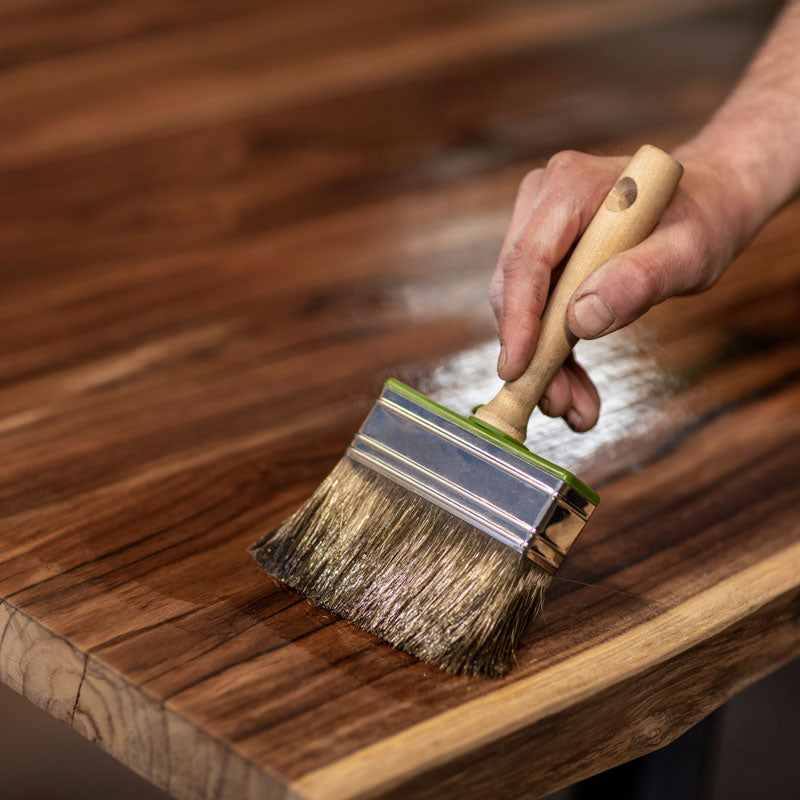
Wood is a traditional material in kitchen utensils such as cutting boards, bowls, rolling pins, spoons and salad servers. Wood is not only a beautiful and durable material, but it is also antibacterial by its nature. Unlike plastic utensils, wooden kitchen utensils are safe and hygienic to use. Plastic materials can potentially release harmful substances into food. Wooden utensils are a good choice for cooking because wood does not get hot or melt, unlike plastic. Wood is also an ecological natural material – it decomposes or can be burned. However, wooden kitchen utensils need regular maintenance to stay usable and beautiful for a long time.
Oiling
Wood needs moisture, so regular oiling is important. New wooden utensils should be oiled before use and about every six months thereafter, depending on the utilization rate. WOODCARE.GUIDE Cold-pressed Linseed Oil is recommended for the treatment. Do not use cooking oils as they may spoil and start to smell.
- Protect the working area, for example with a newspaper or towel.
- The oil should be applied to a clean and dry surface.
- Dip a cloth or brush in oil and apply oil to the surface of the wood. When oiling the utensils for the first time, it is a good idea to apply a lot of oil throughout. Allow the oil to soak into the board and then add oil until the board no longer absorbs any more oil.
- Allow the oil to soak for 15 to 20 minutes and finally wipe off any excess oils with a towel.
- Allow the utensils to dry thoroughly before use.
Note! Linseed oil is flammable, so oily rags should be disposed of under controlled conditions, for example by burning immediately after oiling or sealing in a fireproof container.
Cleaning
- Wooden utensils are cleaned by hand with hot water (and dishwashing detergent), wiped dry after washing and then dried in an airy place in an upright position. This prevents water from being absorbed into the wood.
- Wooden utensils should not be washed in the dishwasher or left in the water as the wood may crack or rot.
- Smelly or stained utensils can be cleaned and refreshed with salt and lemon. The coarse sea salt is sprinkled on the wood and rubbed on the surface with half a lemon. After treatment, the utensils are washed properly.
- Occasionally, wooden utensils can be disinfected with spirit vinegar, etc.
- If the surface of a wooden kitchen utensil is very worn, it can be sanded with sandpaper and the result is as good as new. Be sure to sand the wood with the grain and then oil it thoroughly.

